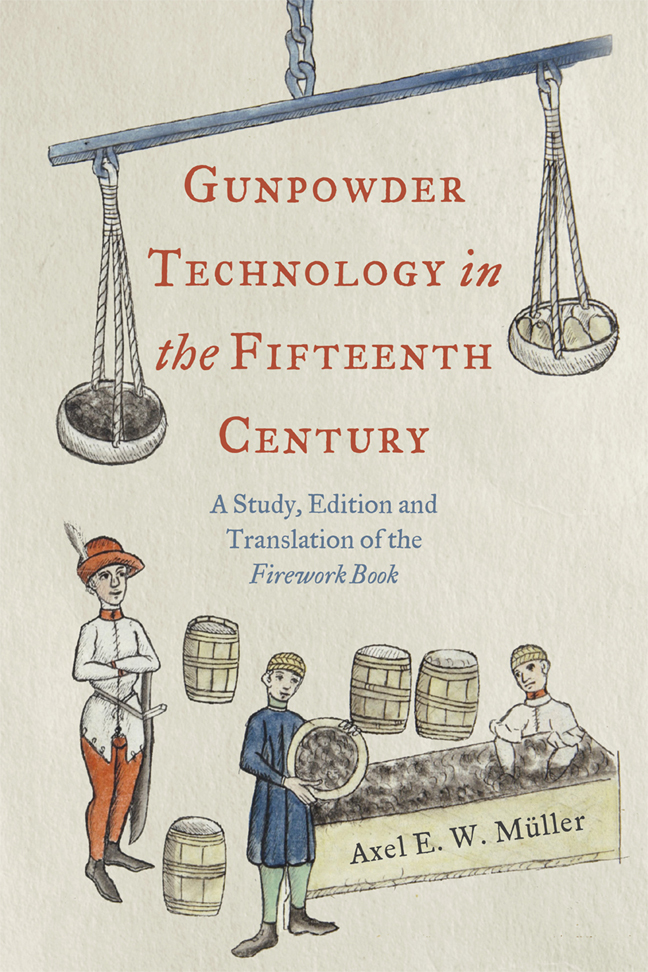 Gunpowder Technology in the Fifteenth Century
Gunpowder Technology in the Fifteenth Century 2 - The Use and Reception of the Firework Book
Published online by Cambridge University Press: 21 February 2024
Summary
One of the most intriguing questions that has challenged scholars over centuries is related to the use and reception of the Firework Book. It was relatively popular both as a manuscript and, later, in print, but there is little evidence of use in the surviving copies and no direct reference to one being consulted. While Chapter 1 discussed the Firework Book tradition and debates the identity and possible intentions of the author or originator of the Firework Book, this chapter will analyse how and in what format the Firework Book could have been used, and how that usage changed over time. In doing so we need to look at the status and identity of gunners, and also explore who else might have owned the Firework Book in subsequent decades and centuries.
Arguably the most helpful explanation of the Firework Book comes from Bert Hall who described its format and content in various publications. In 1979, he referred to it as ‘a practical, didactic manual for artillerymen and [one that] consists principally of recipes for pyrotechnic compounds’. Later in the same article he went into more detail:
The Feuerwerkbuch […] is obviously by a gunner for the use of other gun-ners. Most of its contents have nothing to do with mechanics or ballistics as a science, but instead seem to have served as a sort of cookbook for the gunner.
For reasons already explored. Hall's interpretation of the Firework Book makes a lot of sense. The nature of the text, the quality of the production, the functionality and lack of flamboyant illustrations and illuminations in almost all copies – all of these seem to suggest that the Firework Book was intended to be used by other professionals and not by a wider, more general audience. However, Hall believed that its practical role and function – if indeed it ever was used as such – was short-lived, and that when the Firework Book came to ‘be printed, it functioned more as a collectors’ item for antiquarians’. Yet Hall did not explain why he believed that the Firework Book had become obsolete. Clearly, if the printer felt it was worth printing it in 1529, there must have been a market for this kind of publication, and the book was surely less obsolete than he implies.
- Type
- Chapter
- Information
- Gunpowder Technology in the Fifteenth CenturyA Study, Edition and Translation of the <i>Firework Book</i>, pp. 35 - 55Publisher: Boydell & BrewerPrint publication year: 2024


